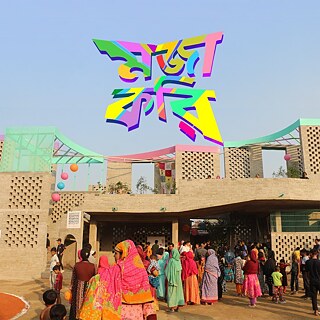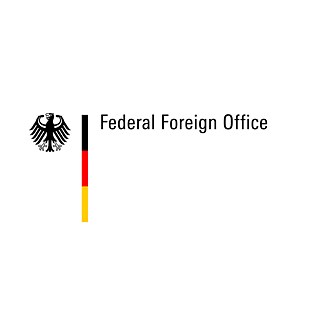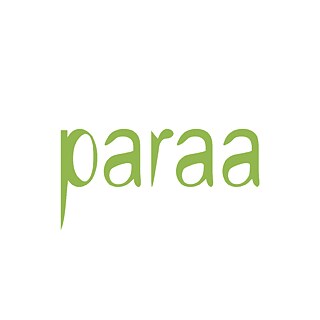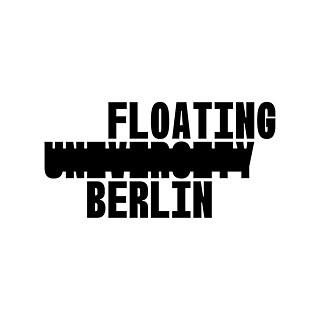Moja Kori design festival
The Moja-Kori Design Festival marked the opening of Machan, Dhaka’s first community-driven cultural center. This four-day celebration, held across December 6, 7, 13, and 14, featured exhibitions, workshops, performances, games, and discussions, showcasing design’s role in fostering cultural connections. Workshops covered skills like upcycling, natural dyeing, and photography, while talks on experience sharing by residents and youth along with theatre and musical performances brought the people of Korail together. The festival’s concept - ‘Moja-Kori’ - translated to English as ‘let’s have fun’, is pushing the boundaries of design’s role in place-making.
KORAIL Residency Program
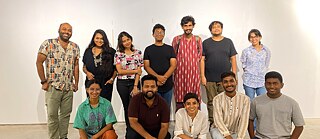
Korail Residents meet and greet | © Rydwan
To know more about the residents
Moja Kori Map
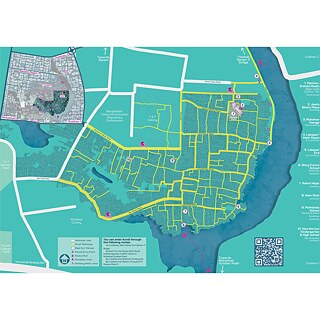
Moja Kori Map | © Paraa, Goethe-Institut Bangladesh
Programmes Under the Festival
Exhibitions
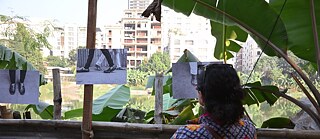
‘Pair of Shoes’ photography exhibition by Jony Akter | © Goethe-Institut Bangladesh
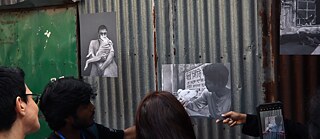
‘Tale of Dogs’ photography exhibition by Robiul Hasan | © Goethe-Institut Bangladesh
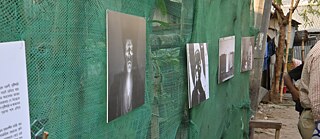
‘I am Unstoppable’ photography exhibition by Munia Akther | © Goethe-Institut Bangladesh
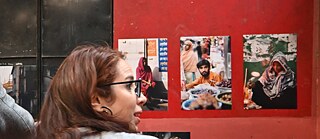
Photography Exhibition by Anamul Haque Shagor | © Goethe-Institut Bangladesh
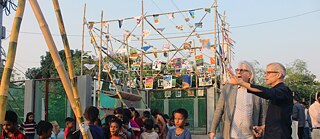
Enabling Structures by Adda Collective | © Goethe-Institut Bangladesh
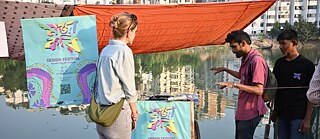
Upcycling for Sustainable & Functional Solutions by Manzoor Ahmed | © Goethe-Institut Bangladesh
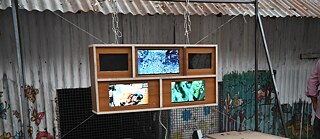
Senses of Korail by Rydwan Ahmed at the Pathshala School | © Goethe-Institut Bangladesh
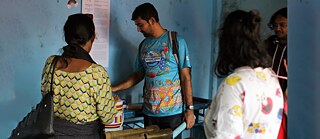
Rhythmic Journey of Korail Tanim Kazi at the Glory Future Model School | © Goethe-Institut Bangladesh
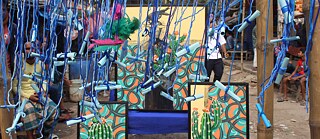
Art Exhibition | © Goethe-Institut Bangladesh
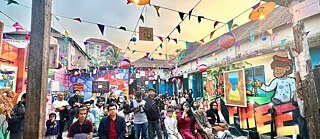
Korail Canvas by Ishrat Binte Rouf | © Goethe-Institut Bangladesh
Talks
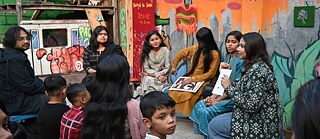
Writers From Korail Moderated by Nujhat Jahan Khan, Speakers: Lamia, Liza, Riyadh, and Papiya | © Fatima Nujhat Quaderi
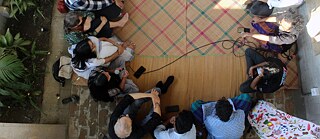
Residents Experience sharing: Manzoor Real, Adda Collective | © Robiul, Goethe-Institut Bangladesh
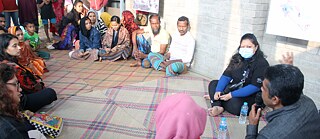
Sustainable Environment: Nogor Abad | © Jony, Goethe-Institut Bangladesh
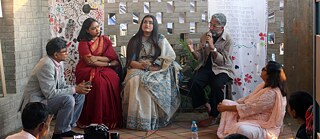
Design Education Moderated by: Sk. Saifur Rahman, Consultant, Haal Fashion, Prothom Alo Panelists: Bishwajit Goswami, Brihatta, Farzana Yusuf, Artisan Social | © Jony, Goethe-Institut Bangladesh
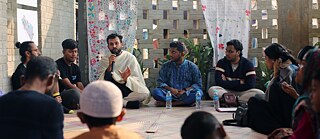
Residents Experience Rydwan Ahmed, Aditya Arzu | © Munia, Goethe-Institut Bangladesh
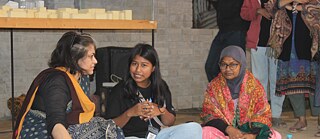
Justice and the City:Housing Rights within the Informal Urban Spaces, Moderated by: Lawyer Sara Hossain, BLAST (Bangladesh Legal Aid and Services Trust) Panelists: Fatema Akter, NDBUS, Lawyer Khalid Hussain, Council of Minorities | © Robiul, Goethe-Institut Bangladesh
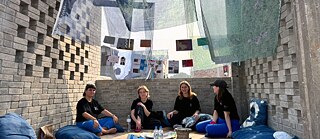
Tracing Water Paths Floating E.V | © Goethe-Institut Bangladesh
Workshops
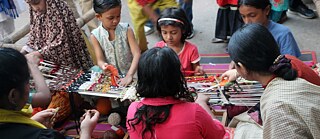
Transforming a Dot by Shah Newaz Shaikat, Internal Hub | © Korail Youth Robiul, jony, Munia, Goethe-Institut Bangladesh
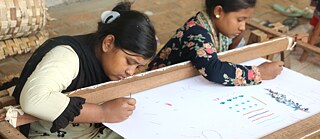
Karchupi Workshop by National Crafts Council of Bangladesh | © Korail Youth Robiul, jony, Munia, Goethe-Institut Bangladesh
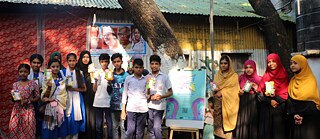
Creative Art and Crafting Activities for Kids and Teenagersby Fabliha Afaf & Raiyan Nasir | © Korail Youth Robiul, jony, Munia, Goethe-Institut Bangladesh
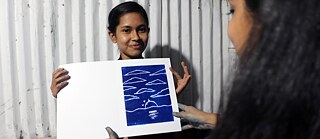
Prosongota Ghorer by Suborna Morsheada & Mohammad and Tasawar Islam | © Korail Youth Robiul, jony, Munia, Goethe-Institut Bangladesh
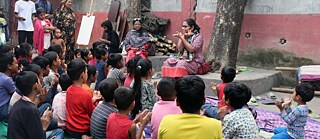
Learn with Rhymes by Tanita Hossain, Phulki | © Korail Youth Robiul, jony, Munia, Goethe-Institut Bangladesh
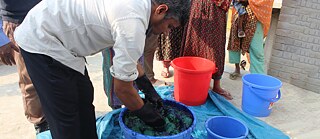
Natural Dye Workshop | © Korail Youth Robiul, jony, Munia, Goethe-Institut Bangladesh
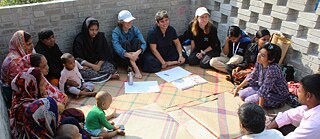
Zine Making Workshop by Floating EV | © Korail Youth Robiul, jony, Munia, Goethe-Institut Bangladesh
Performances
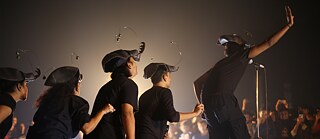
Drama by Prachyanat | © Goethe-Institut Bangladesh
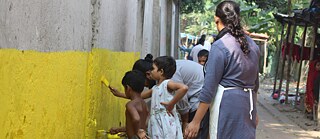
Tear Along the Dotted Lines by Apurbo Das Suvro | © Goethe-Institut Bangladesh
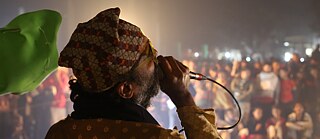
Emergency Song Supply von Betal | © Goethe-Institut Bangladesch
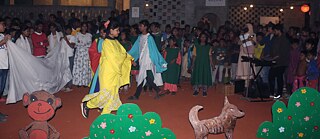
Musical Play 'No Plastic Fantastic' Street Children's PARTNERS Bangladesh | © Goethe-Institut Bangladesh
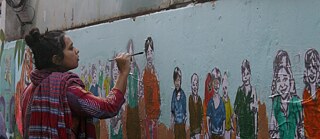
Strokes of Resilience by Dibarah Mahbub | © Goethe-Institut Bangladesh
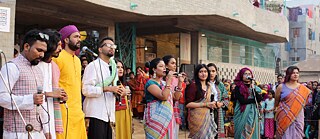
Udoy by Ghaasphoring Choir | © Goethe-Institut Bangladesh
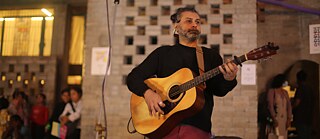
Performance by Tulkalam | © Goethe-Institut Bangladesh
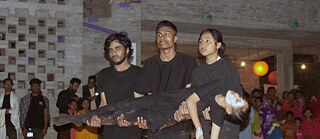
Celebrating Community Stories and Spirit Md Riyad Hossen | © Goethe-Institut Bangladesh
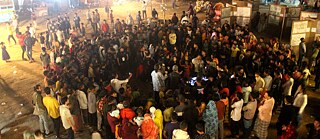
DJanky in Korail by Ayela Amin | © Goethe-Institut Bangladesh
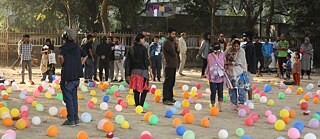
Treasure Hunt | © Goethe-Institut Bangladesh
Machaan
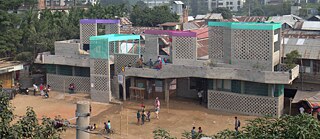
Machan, Dhaka’s first community-driven cultural center at Korail | © Nasib, Paraa
Contact
-
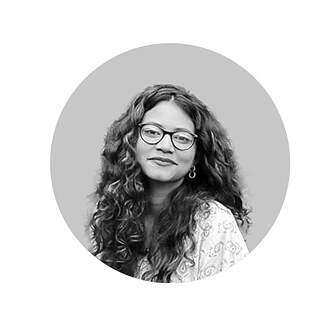
-
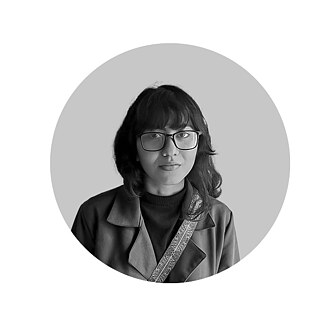
Fatima Nujhat Quaderi
Project Assistant , Goethe-Institut Bangladesh
